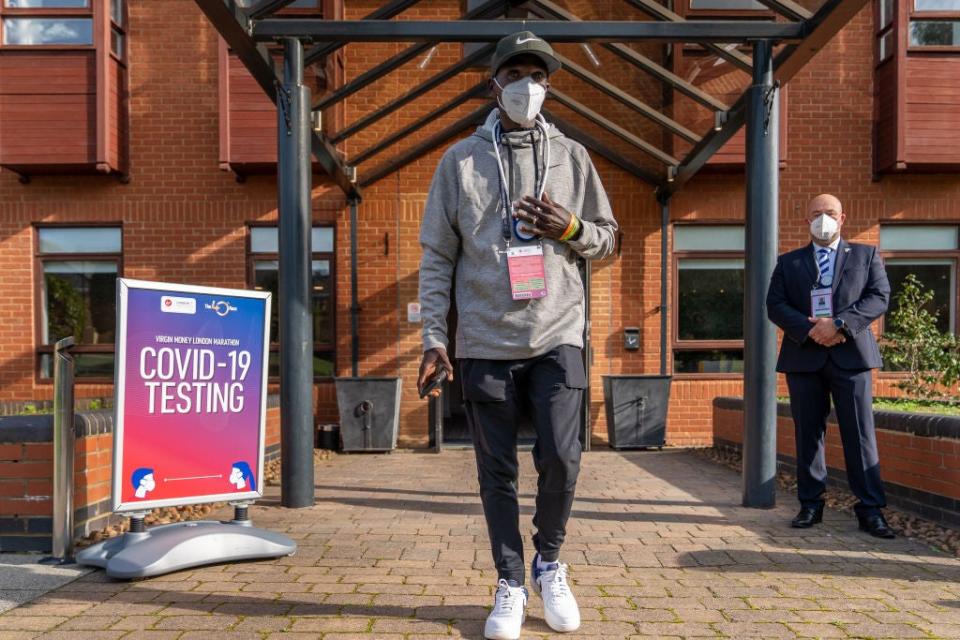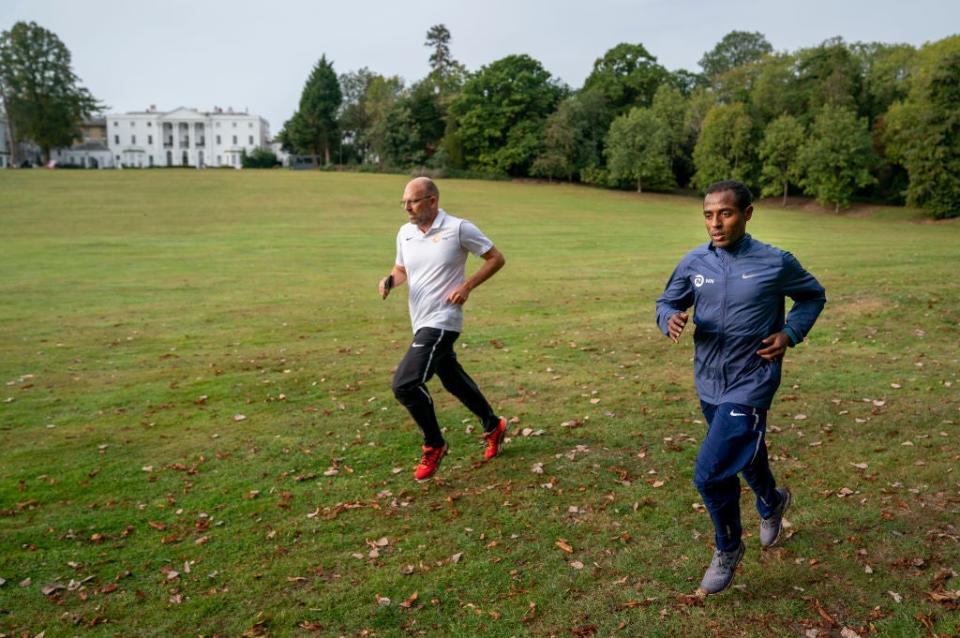Eliud Kipchoge and Kenenisa Bekele duel in London Marathon’s battle of stars and shoes

There is a mystique surrounding Eliud Kipchoge. The Kenyan marathon world record holder’s gentle persona, which contrasts with the brutal manner in which he ruthlessly discards his rivals enroute to glory over 26.2 miles.
There is also a passiveness, with his selfless nature allowing him to be obscured by the pack of runners he trains with on the outskirts of Eldoret in the Kenyan Highlands, underlining his commitment to teamwork in the loneliest of sports. This is all to say the 35-year-old’s unparalleled dominance is rather undercelebrated: 10 successive victories in major marathons, including his world record of 02:01:39 in Berlin two years ago. It goes further, with 11 victories in 12 official marathons (his staggering sub-two hour effort in Vienna last year remains unofficial), toppled only by former world record holder Wilson Kipsang in 2013, who is now serving a four-year ban for doping offences.
But every legend in modern sport requires a rival, to provide context and push them to their limits: from Lionel Messi vs Cristiano Ronaldo to Roger Federer vs Rafael Nadal. Could Kenenisa Bekele finally be the man to push him then in the Virgin Money London Marathon? The Ethiopian, 38, a track legend in his own right with three Olympic gold medals, fell an agonising two seconds short of Kipchoge’s world record last year in Berlin.
So the 40th Race in the capital on Sunday, with the men’s race set to begin at 10:15, promises much, yet it is shrouded in controversy.
The 19.6 laps around St James’s Park, a 2.15km loop, before the traditional finish on The Mall, should encapsulate the beautiful simplicity of running with the distinct possibility of a new world record.

However, there is an elephant in the room with shoe technology more prominent than ever before, specifically Nike and the Air Zoom Alphafly Next%. The sports manufacturer has attracted criticism for the personalised version of the shoe in Kenyan colours for the favourite, while Bekele has opted for the older version of the carbon-plated rocket boots - the ZoomX Vaporfly Next%.
"I'll wear the Vaporfly, not the Alphafly,” Bekele explained. “Because I have a little bit of a problem with the Alphafly, I need more time to adapt. It’s really difficult to adapt to these shoes, especially with speed workouts.

“Several times I had some minor injuries, like a muscle stretch. Because the shoe is not stable under the foot. It’s really unshaped. It’s really soft. The muscle needs to adjust to the movement under it. It’s really difficult.”
The fear, then, is that the shoe can and perhaps will make a difference between these two legendary athletes - let alone the disadvantage for runners wearing non-Nike shoes. With Kipchoge and his Ineos 1:59 project, not to mention special attention behind the scenes as Nike’s poster boy, there appears to have been a greater opportunity to make an unmistakably tricky transition. He maintains it is “fair” though, and that the sport “needs to accept change”.

While the repetitive nature of almost 20 laps in a post-Covid marathon has seen Bekele cede a small mental edge by admitting he finds this style of running “boring”.
The initial excitement of a potentially defining moment for these two legends of the sport has somewhat been curtailed. So while dominant form and an apparent technological advantage points to one winner, Bekele must embrace his rival’s mantra following Vienna: “anything is possible.”

 Yahoo Sport
Yahoo Sport 





































